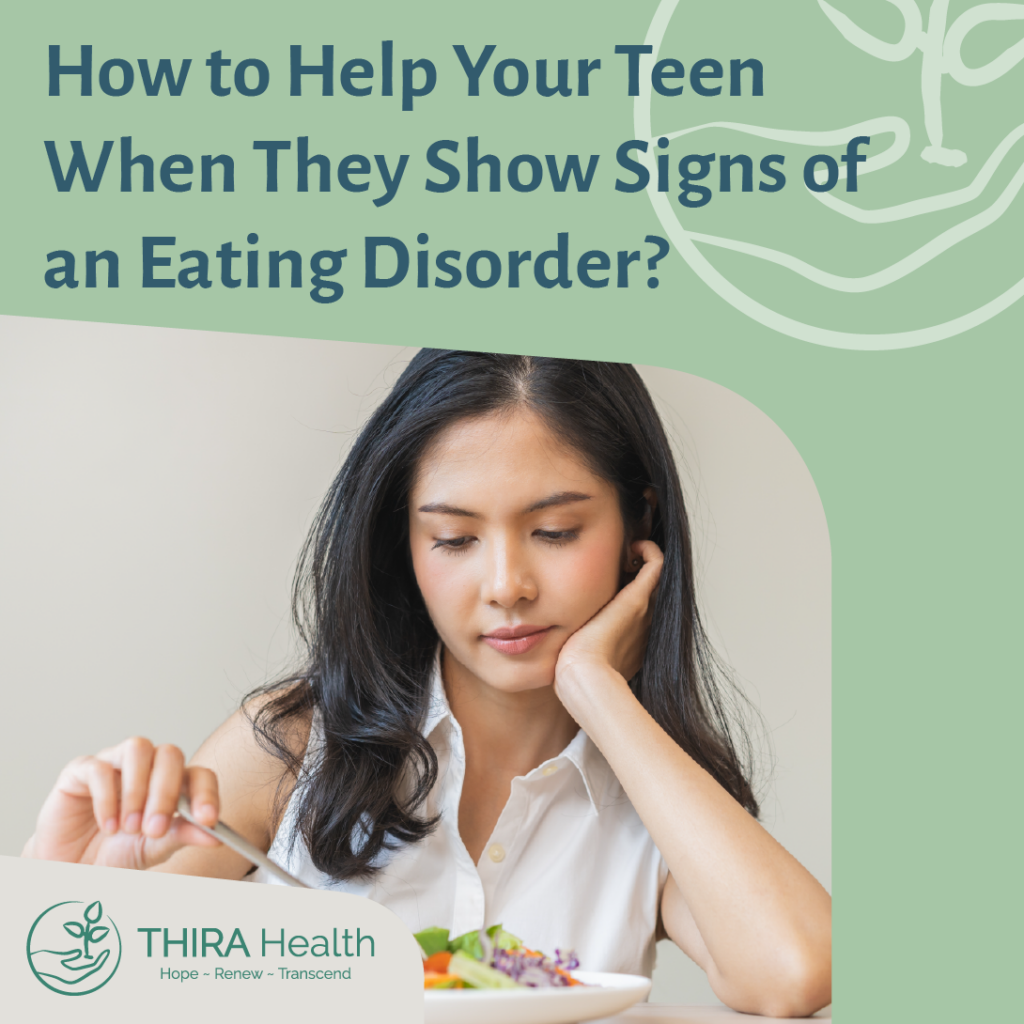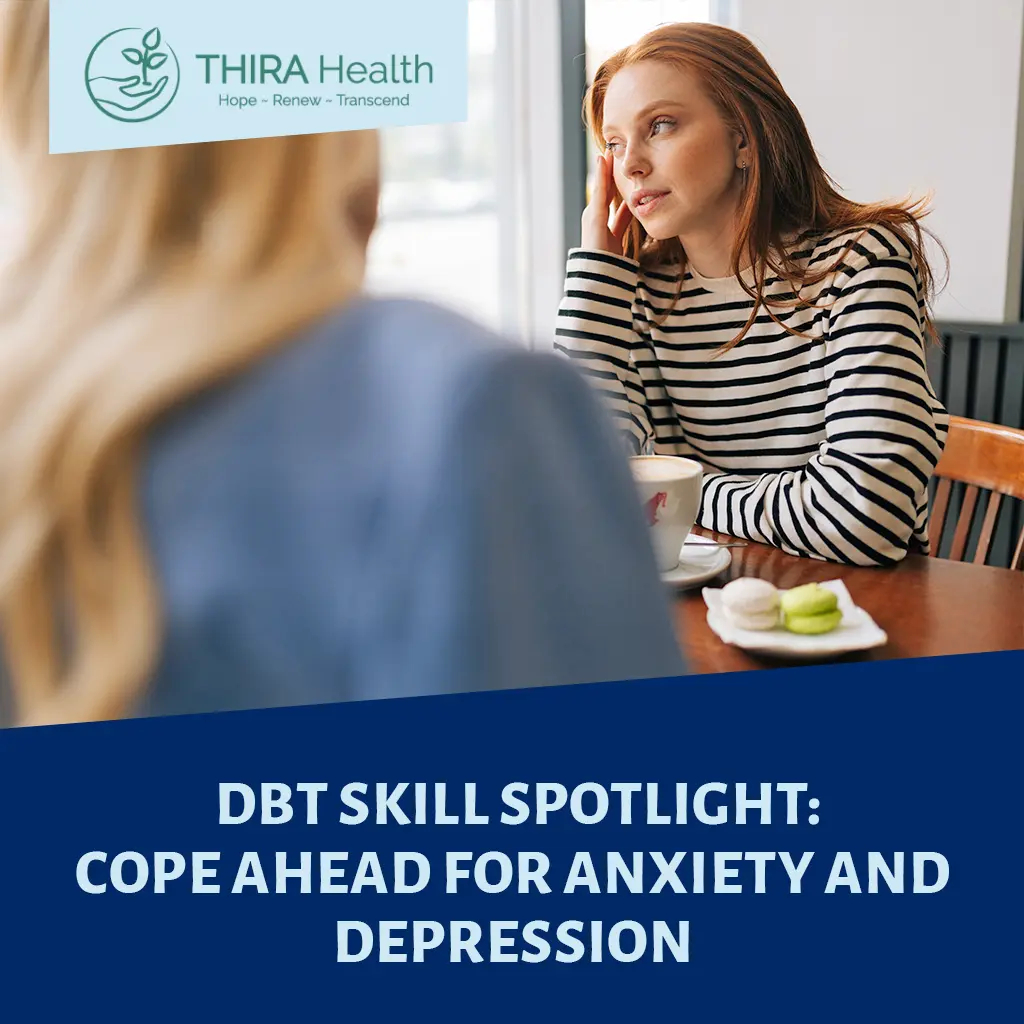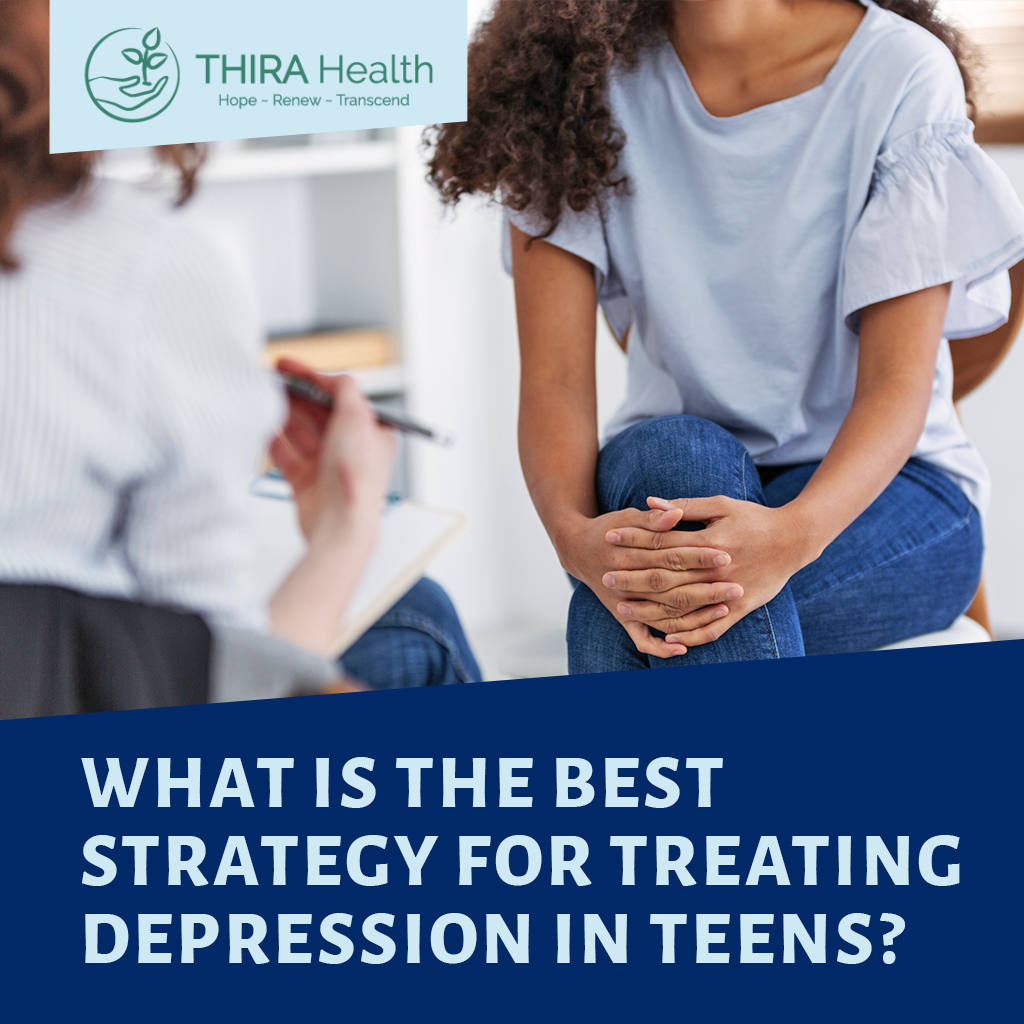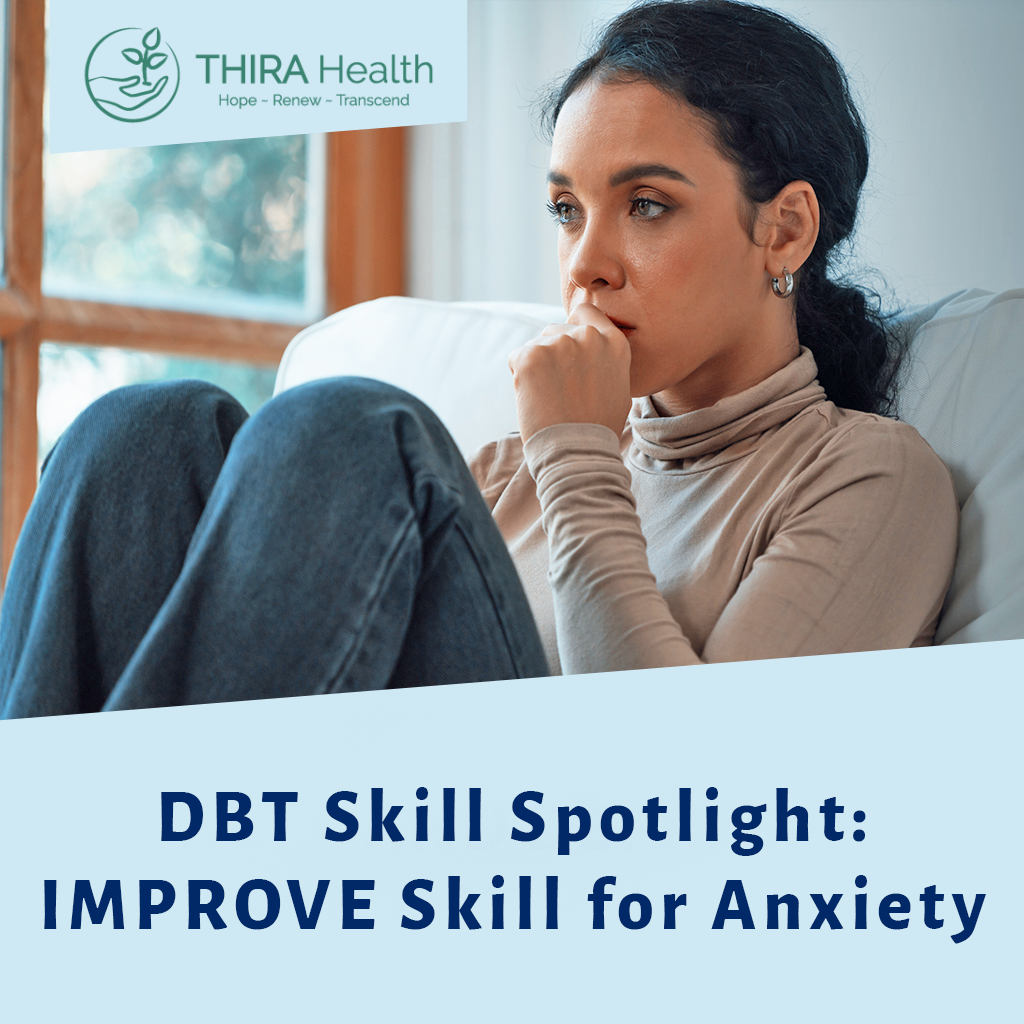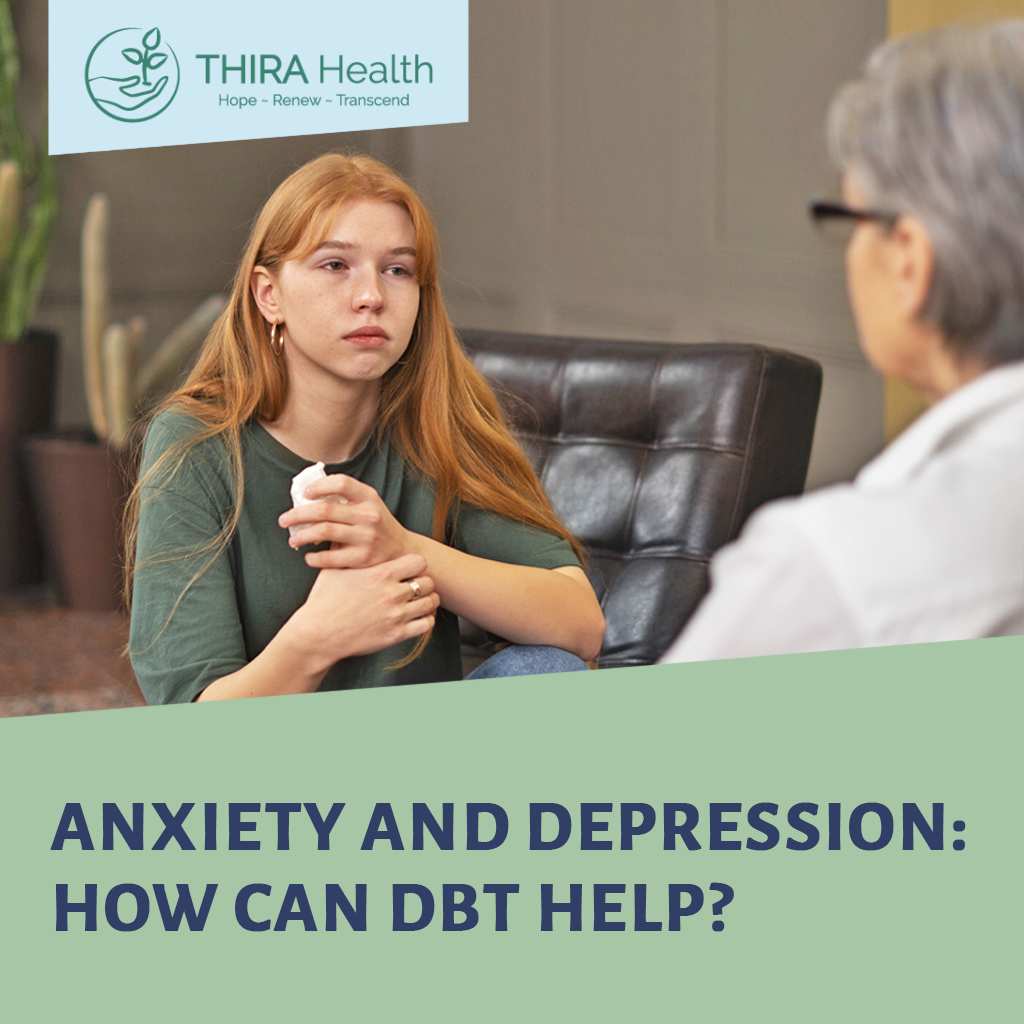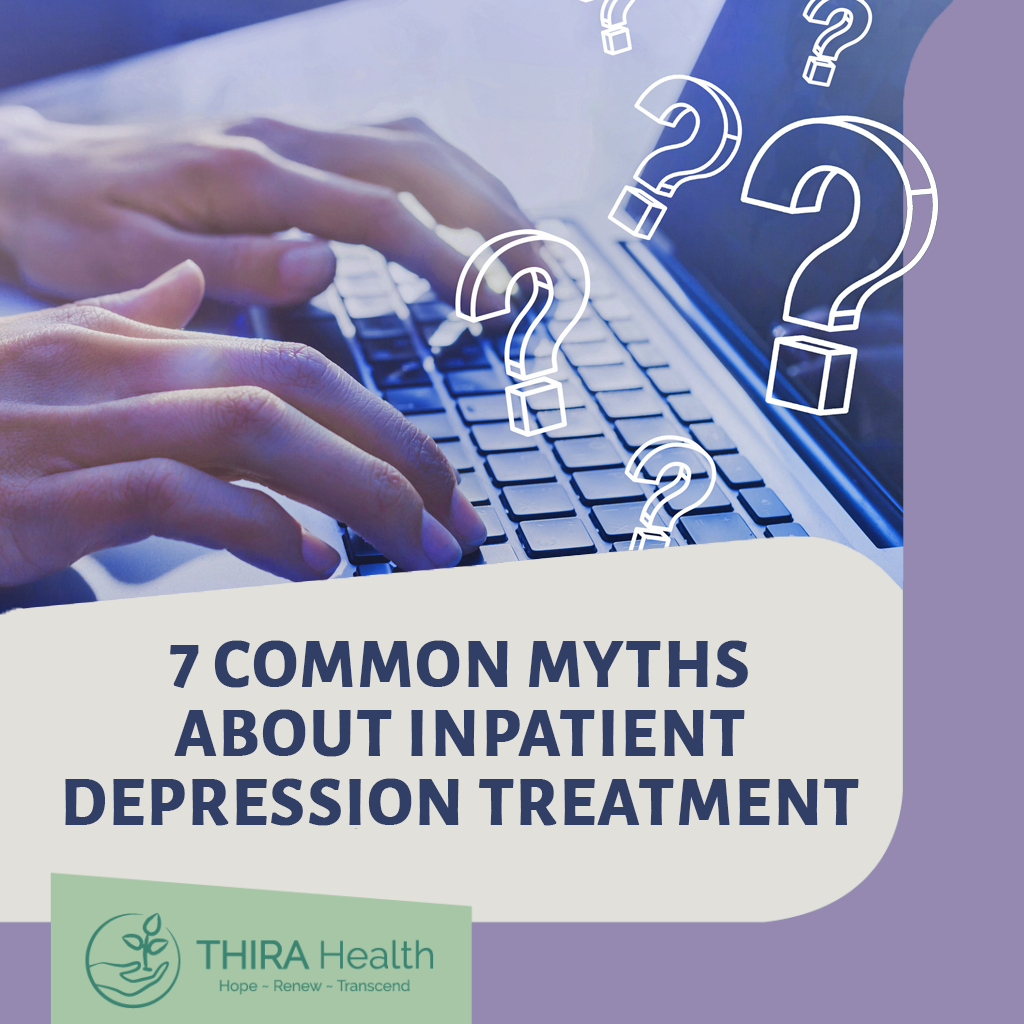The fall and winter holidays are upon us, a time of festive foods and sharing large meals. But when your teen is showing signs of an eating disorder, it can add worry on top of all the seasonal abundance.
You’re likely holding on to contrasting hopes for your teen; you’d like to help them, and you’d like them to have a happy holiday season. But you also don’t want to push them or make things worse, and you know it would help them—and you—for them to be more open about their struggles.
How, then, can you help your teen when you’re concerned they have an eating disorder around the holiday season?
Signs of an eating disorder in teens
You may have noticed signs of an eating disorder in your teen, including:
- Avoiding foods or skipping meals
- Exercising too much
- Substantial or fast weight loss
- Only eating “clean”
- Weighing themselves often
- Sneaking food
- Rigid food rules and calorie counting
- Eating huge amounts of food at once
- Spending too much time in the bathroom after meals
Eating disorders aren’t just about food, either. Typically, eating disorders evolve as a way to cope with mental health struggles. In fact, some signs of an eating disorder are more in line with mental health conditions like depression or anxiety, including irritability, avoiding social situations, sleeping excessively, difficulty concentrating, excessive worry, feelings of hopelessness or worthlessness, and even talking about self-harm or suicide.
Noticing is a significant first step as a parent! You’ve discovered your teen is struggling with an eating disorder, but now what?
How to help a teen who may have an eating disorder?
Focus less on food
Take a look at your holiday traditions and see where you can de-center food. You don’t have to toss out family meals or holiday favorites; the goal isn’t to eliminate holiday foods. Instead, try to focus your attention, and your family’s and friends’ attention, on experiences and activities that don’t entirely center around food.
Embrace the beauty of holiday lights, go on hayrides, visit pumpkin patches, and decorate with homemade decorations you spend time making together. All of these activities focus on togetherness and making memories, and they’ll help your teen feel connected to the moment and the holiday without adding pressure around eating.
Think about your language around food and appearance
Are you critical about food choices or your appearance? Do you, or anyone close to your teen, talk a lot about calories, “being good” or “being bad” when it comes to eating, or make eating choices that encourage restriction?
We live in a country that often encourages “diet culture” discussion of food, and this can be particularly harmful to a teen who may have an eating disorder. Holiday foods are often considered “indulgent” or “naughty,” this language can stop many people from joyously eating around the holidays. Consider these word choices to use this holiday season:
- Instead of “This is low-calorie, isn’t that great?” say, “This new food is delicious, isn’t it? I like that flavor.”
- Instead of “I am so full, I ate so much!” consider “Oh, that was a satisfying meal.”
- Instead of “I can’t eat that, I need to be good,” try “I’m not sure I feel like eating that right now; I will wait until I’m hungry.”
Start the conversation on signs of an eating disorder
When you’ve noticed that your teen is showing signs of an eating disorder, you may fear bringing it up in case they clam up and shut you out. But as a parent, it’s up to you to start the conversation, and there are gentle, helpful ways to start. Here are a few options to open the door to talking with your teen about what you’ve noticed:
- “I’ve noticed you’re changing how you eat, can we talk about that?”
- “Have you been struggling with anything to do with food lately?”
- “Hey, it seems like you’ve been worrying about your weight lately. Is that something you want to talk about?”
- “Is there anything you’d like to talk about when it comes to how you feel about yourself?”
Let your teen know you’re on her side during holiday gatherings
Even if your immediate family makes thoughtful choices around language and de-centers food in your holiday gatherings, your teen’s extended family and their friends may not make the same effort. You can save your teen from tough conversations by setting the tone for holiday get-togethers. Try encouraging friends and family to speak neutrally about food and focus on memories instead.
Your teen may not want to share about their eating disorder at holiday gatherings, so you can take the lead by simply letting people know that it’s important to you. It’s an honest reason, and you won’t be sharing more about your teen than you want to.
Finding eating disorder treatment for your teen
One of the best ways to help your teen this holiday season is to find a holistic adolescent eating disorder treatment program. A strong eating disorder treatment program knows that eating disorders aren’t just about food and will incorporate nutritional support and counseling, mental healthcare that includes evidence-based treatments like a DBT program and teen depression treatment, mindfulness and expressive arts therapy, community connections, and family support to help integrate eating disorder support into the home after your teen leaves treatment.
It is essential to prepare yourself and your teen for the possibility that she may need inpatient mental health treatment in Seattle to get a handle on the most severe symptoms of her eating disorder. Inpatient treatment is proven to help with both the physical and mental impacts of an eating disorder, allowing your teen to focus on her recovery.
During the holidays, it can be hard to consider having your teen live separately from your family. Still, inpatient care gives her space from life stress and social pressure so they can work with therapists and other patients to learn multiple healthy ways to cope. Adolescent eating disorder treatment now can offer your teen the chance for many happier holiday seasons in the future.
Incorporate DBT program techniques into your holiday traditions
If your teen is working in a DBT program or has recently completed inpatient mental health treatment in Seattle for an eating disorder, you can support your teen’s recovery by using DBT skills they learned in therapy as part of your holiday celebrations.
Consider these examples:
- You can encourage mindfulness in your teen by asking her and your whole family to take a breath and use that moment to notice what’s happening in special moments around holiday traditions.
- You can support your teen’s emotional regulation by encouraging her to take the opposite action when she has strong, difficult emotions.
- Structuring family and friend gatherings so your teen can establish and enforce firm boundaries can help with interpersonal effectiveness and working on self-soothing when strengthening her distress tolerance.
You are a vital part of your teen’s well-being, and your attention and care during the holiday season can be the key to your teen getting the help and support they need to embrace this festive time of year. If you’re looking for extra support for your teen in the form of eating disorder treatment, consider contacting THIRA Health today to see how we can help.
